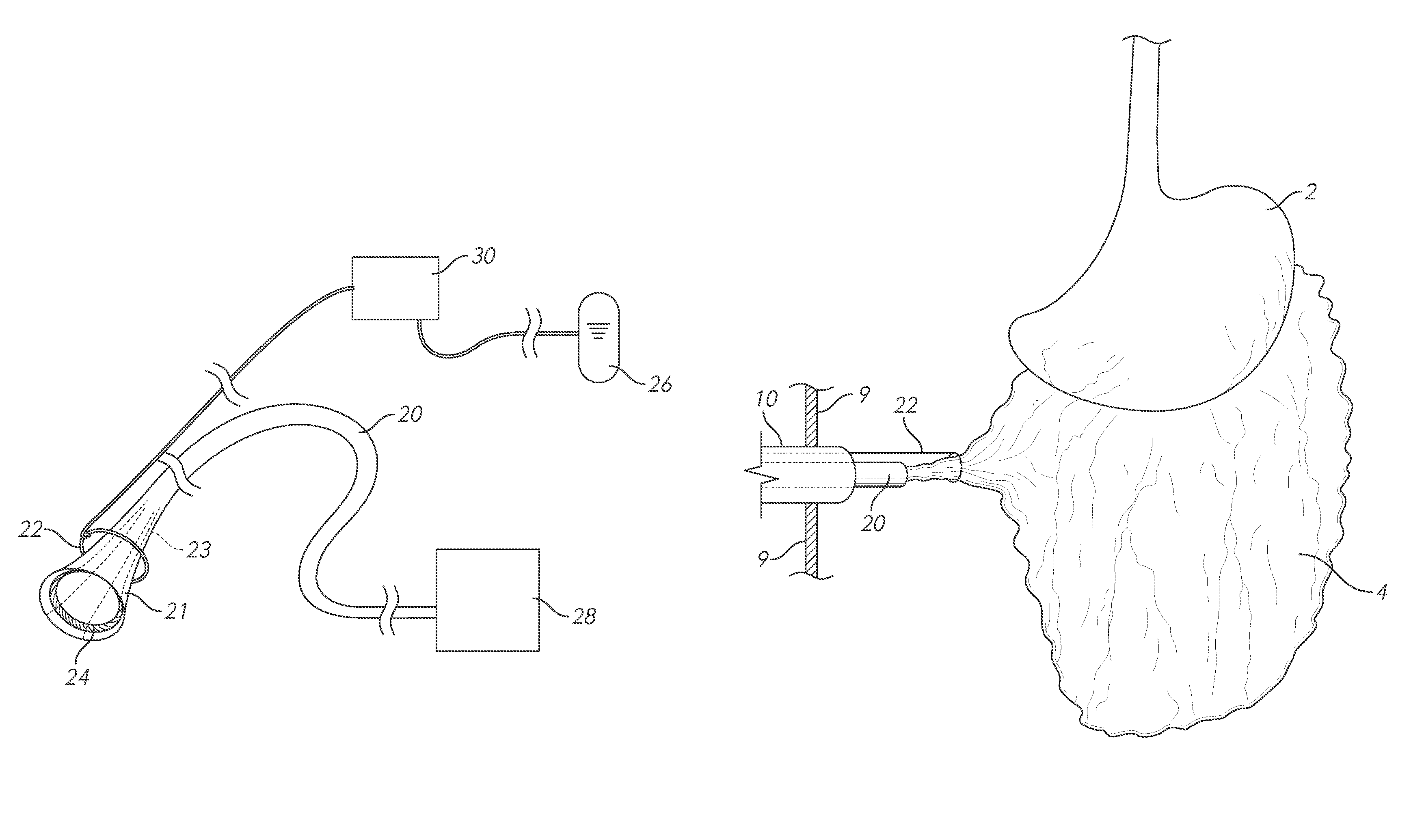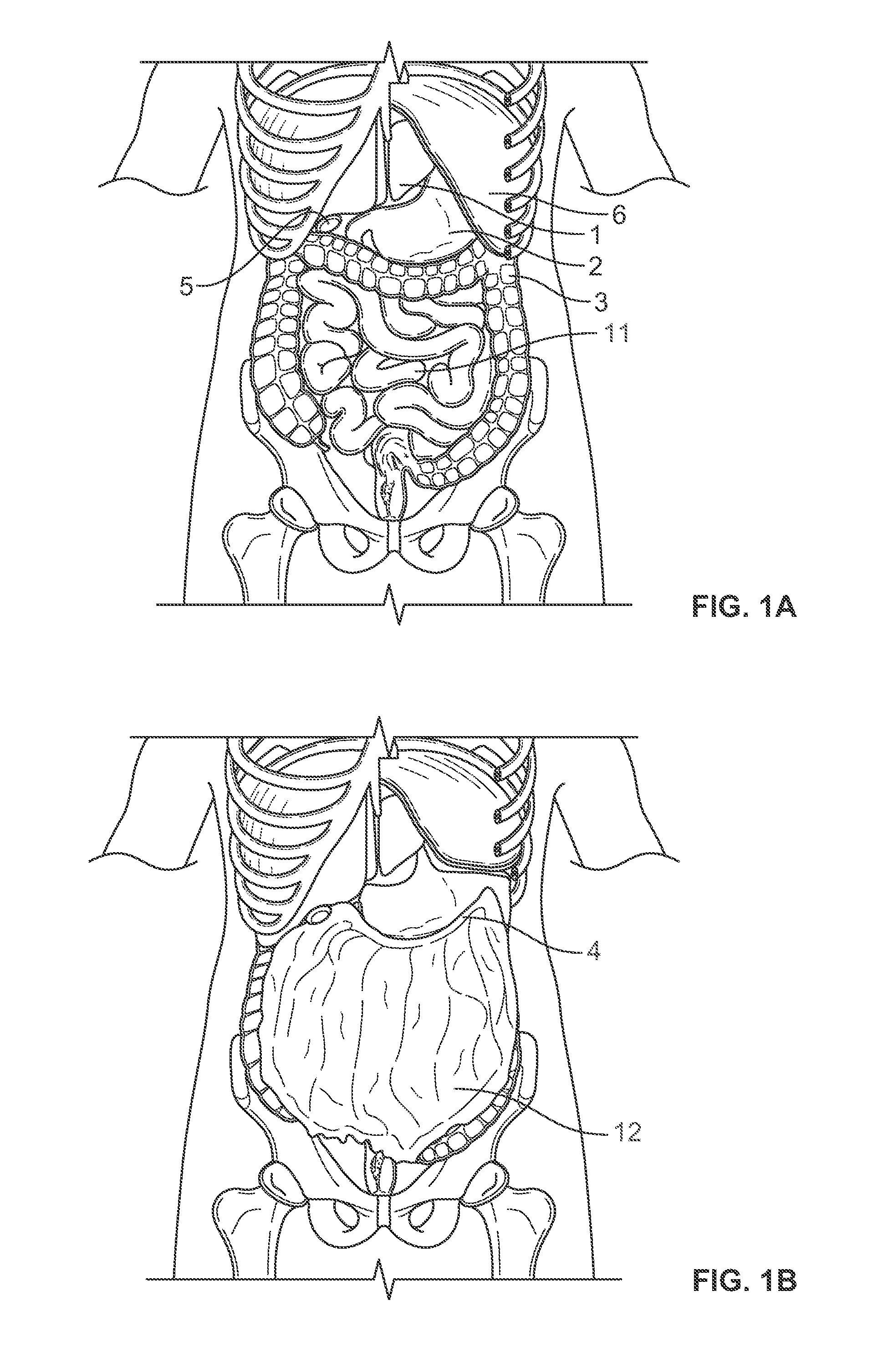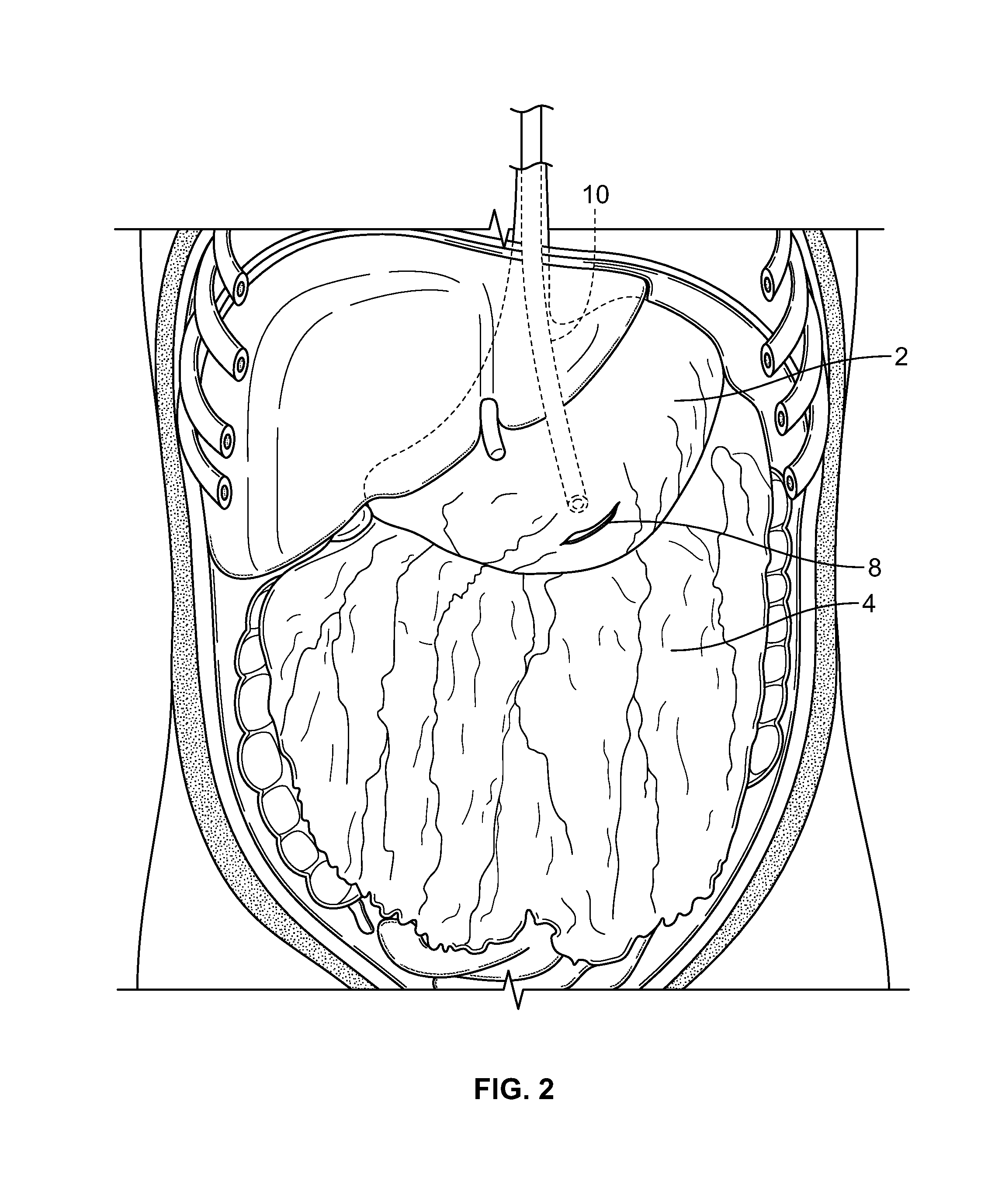Methods and devices for removing omental tissue
a technology of omental tissue and omental nerve, which is applied in the field of methods and devices for removing omental nerves, can solve the problems of complicated procedures, significant additional costs for follow-up treatment, and painstaking cauterization of blood vessels, so as to reduce the incidence of morbidity, prevent bleeding, and eliminate collateral effects
- Summary
- Abstract
- Description
- Claims
- Application Information
AI Technical Summary
Benefits of technology
Problems solved by technology
Method used
Image
Examples
Embodiment Construction
[0051]FIG. 1A illustrates an example of an abdominal cavity and abdominal organs (including the liver 1, stomach 2, large intestines 3 and small intestines 11, as well as the gall bladder 5). As shown, the organs are located under the diaphragm 6. For purposes of illustration, the omentum and omental fat are not illustrated in the figure. However, FIG. 1B illustrates the omentum 4 and omental fat 12 which surround the abdominal organs.
[0052]In one variation, the methods described herein allow the surgeon to access the omentum and omental fat through a NOSCAR keyhole through the stomach wall. In doing so, an endoscope or other catheter can be introduced through the mouth for advancement into the stomach. The physician then makes an incision in the stomach or esophagus to enter the abdominal cavity. For example, as shown in FIG. 2, a process of removing portions of the omentum and omental fat uses a path through the stomach 2. As shown, a device 10 such as a scope or other catheter ca...
PUM
 Login to View More
Login to View More Abstract
Description
Claims
Application Information
 Login to View More
Login to View More - R&D
- Intellectual Property
- Life Sciences
- Materials
- Tech Scout
- Unparalleled Data Quality
- Higher Quality Content
- 60% Fewer Hallucinations
Browse by: Latest US Patents, China's latest patents, Technical Efficacy Thesaurus, Application Domain, Technology Topic, Popular Technical Reports.
© 2025 PatSnap. All rights reserved.Legal|Privacy policy|Modern Slavery Act Transparency Statement|Sitemap|About US| Contact US: help@patsnap.com



